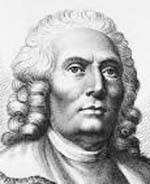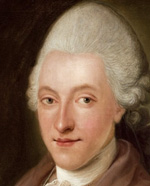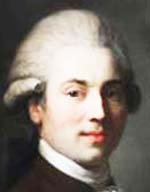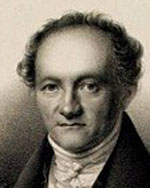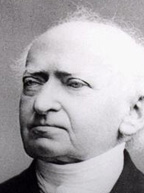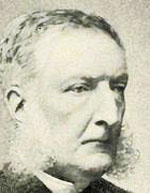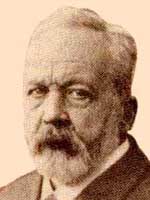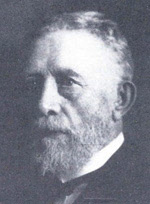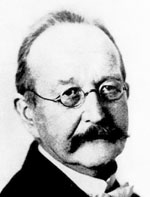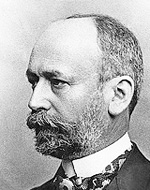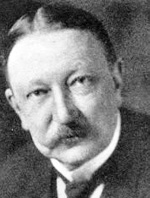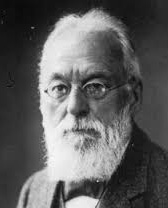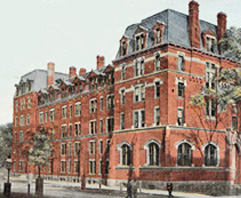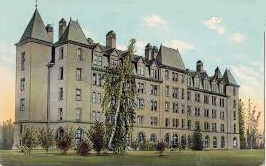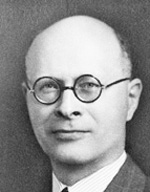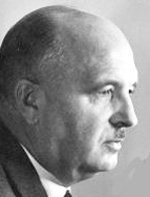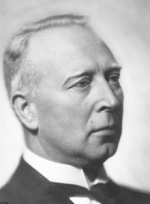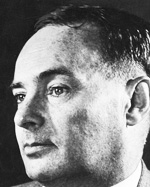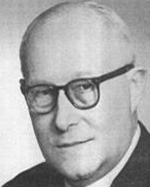Hebrew Bible
Festival CalendarThere are two ways, two irreconcilable ways, of reading any sacred text. It can be approached as the Words of God, or as Words of Men about God. In the first, the failures of prophecy and the inconsistencies of doctrine must be explained as after all successful and consistent; the art of these explanations is called Hermeneutics. In the second, the failures and inconsistencies are accepted, and taken as evidence for the historical situation of the writers of the texts, and the progress in understanding represented by the texts taken together. The first leads to Theology, the second, to History. Each has its sphere and its votaries, but the two are fundamentally different. This the History page.
The project of treating the Biblical texts historically had its beginning in the Enlightenment. The idea was to understand the world, not from respected ancient writings, such as Aristotle's laws of motion, but from direct observation of how things actually move, whence Newton and the whole of modern science. The Biblical counterpart of this new approach was aided from the outset by the precedent of Classical philology, whose practitioners are free to admire Greek drama without being required to believe that Sophocles wrote all of it, and by new interest in human institutions such as law, which arise from human needs and are modified - we can watch ourselves modifying the laws - by human agency.
The Hebrew Bible teems with problems. The iconic figures of Moses and David are emphasized or ignored by turns; a priestly agenda exists alongside an anti-priestly strain, there are both narrow and wide views about who are the people of YHWH. There are assurances that virtue will lead to prosperity, and questions about how to understand the suffering of the good. All these, plus folk tradition, jostle each other, and argue with each other, in texts both canonical and noncanonical, over many centuries. The result is the Hebrew Bible. The critical historian of the present day, looking over the scene, can probably see the outlines of the eventual picture, emerging from the murk of piety and the smoke of battle. But it is going to take more digging down and scrubbing off to bring that picture fully into focus. The same old uncertainties are still being debated and redebated; the same old hypotheses are still being argued and reargued; and the many gimmicks of recent years, the Thousand Geschichte, have brought to the work more confusion than clarity.
So it is perhaps a bit early to declare a general solution, or to identify the Great Figures who have led us to that solution. Here, instead, are some people who have played a part in getting the subject to the point it has reached at present. Others might be included, but these may serve for the moment. If some idea here mentioned seems wrong, that will itself suggest further attention to the problem, perhaps in a different direction. We thus recommend that this Festival Calendar be kept, with an observance roughly every two weeks (exact dates being left to the convenience of individuals), as an exercise in gratitude, and as an inspiration for further work on the problems. These are some of the people whose labors have given context to our labors, and whose mistakes have given countenance to our mistakes. It is now for us to do our bit.
Jan Feb Mar Apr May Jun July Aug Sept Oct Nov Dec
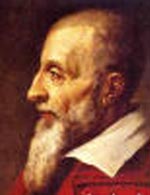
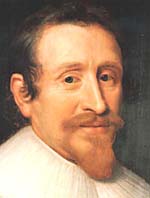
Joseph Scaliger (5 August 1540 - 21 Jan 1609). The critical study of the Biblical texts has its roots in classical philology, as is already apparent in the work of Scaliger. He was born in Agen, on the river Garonne in southern France, the tenth child of the philologist Julius Scaliger, He was at first taught Latin by his father. He then studied Greek and Oriental languages at Paris, and later (at the encouragement of Postel) Hebrew, Syriac, and other Semitic languages; still later law, at Valence. In his travels, including Scotland and England, where he met Isaac Casaubon, he converted to Protestantism, thus aligning himself against the Jesuits (representing Catholic scholarship). Following the massacre of Huguenots on St Bartholomew's Day in 1572, he fled with others to Geneva, and taught there for three years (1572-1574). But he hated teaching, and returned to live quietly in France, under the protection of highly placed friends, spending time in private research. In those years, he took the lower criticism (recovery of the archetype of a text through comparison of manuscript variants) to new heights, and made much-admired editions of Catullus, Tibullus, and Propertius (1577). He pioneered also in the higher criticism: the recovery of earlier states of the archetype through the analysis of errors common to all the manuscripts. He at first declined an offer to succeed Lipsius at Leiden, but accepted a year later (1593) when it was agreed that there would be no teaching requirement; all Leiden wanted was his presence. The result not only made the reputation of that university, but established it as a center of philology.
Texts apart, Scaliger also worked in the past at the points where the past remains most tangible: inscriptions and other archaeological findings. He brought back from Cairo the first copy of the Samaritan book of Joshua, and kept up a correspondence with the Palestinian Samarian community. A text cannot be understood historically unless it is placed in history, and for this one needs a correct picture of ancient chronology. Scaliger was in touch with the astronomical discoveries of Copernicus. He rejected the backward projection of the Gregorian calendar, and made use of Oriental chronicles in correcting the chronology used in his own time. In 1606, near the end of his life, he published his recovery, and correction, of the chronology of Eusebius. Let it be added that, though recognized as the most learned man of his time, he was not infallible. He pioneered the study of Old Latin, and was once taken in by some Old Latin verses which impressed him greatly, but turned out to have been written by a colleague in the work.
Hugo Grotius (10 Apr 1583 - 28 Aug 1645). Grotius (or de Groot) entered the University of Leiden at the age of eleven, studying classical philology with Scaliger, but majoring in law. He began practicing law in 1599. Holland at this time was a great maritime country; it was from Dutch traders that Japan got its first glimpse of the industrially advanced West. Grotius was the first expert in international law; in particular, the law of the sea; the deep waters lying beyond the reach of national law. An incident arose. A Dutch ship had seized the cargo of another country's ship at Singapore. Claims arose, and the Dutch government called on Grotius for an opinion.. . . , and was given a permanent government position at Rotterdam in 1613. In 1615, he traveled to England where he met Isaac Casaubon; this was the beginning of his interest in reconciling Protestant and Catholic Christianity. In religion, Grotius he was a follower of Arminius (1560-1609, recipient in 1603 of the first PhD awarded at Leiden, and Professor of Theology at Leiden from that year until his death). Arminius publicly opposed the then-official doctrine of Predestination, and emphasized human free will. His followers, who called themselves Remonstrants, were officially condemned at the Synod of Dort, 1618-1619.
Thomas Hobbes (5 April 1588 - 4 Dec 1679)). A sea away from these stirrings on the Continent, the English nationalists played an important role in the unwinding of older approaches. In his Leviathan (date), Hobbes for the first time explicitly denied Mosaic authorship of the Pentateuch, and called attention to several passages (Gen 1:6, Num 21:14, Deut 34:6) which suggest a date long after Moses' time. He suggested that other Biblical books (Joshua, Judges,1-2 Samuel) were also written after the events they portray, and are thus compromised as sources for history. To him, the book of Job was not a history, but a treatise about the problem of the prosperity of the wicked. Judged as history, much of the Hebrew Bible thus falls short, and its authority for modern persons is weakened accordingly. This was the decisive step: the moment of discontinuity with previous thought.
Baruch Spinoza (24 Nov 1632 - 21 Feb 1677). The family were Portuguese Jews, who had been forcibly converted to Christianity. Spinoza himself grew up in the Jewish community in Amsterdam, but eventually became dissatisfied with the rabbis' teachings, and by 1656 he was expelled from the Jewish community. He turned to philosophy, where he was especially influenced by Descartes in seeking the ultimate basis for human guidance. He regarded the Bible as partly unintelligible due to its antiquity, unsound in its reliance on miracles, and as in any case largely limited to prescribing for Jewish nationalism, thus falling short of what the teachings of a universal God should be; his God was amoral God. His Tractatus Theologico-Politicus (1670) not only shocked the Jewish community, but aroused wider theological disapproval as well; his works were later placed on the Catholic Church's Index of forbidden books. He made his living as a lens grinder, working on microscope and other lens design with Christiaan Huygens.
Richard Simon. (13 May 1638 - 11 Apr 1712). The enlightenment was creeping in, and had begun to be felt in theological circles. Spinoza's critique of the Bible had offended many, and respect for Scripture had to be restored, and yet the spirit of inquiry was also pushing to be heard, in the top intellectual circles. Richard Simon hoped to be able to balance these conflicting tasks. In his . . .
Jean Astruc (19 March 1684 - 5 May 1766) was a man of science; the dean of the medical faculty of X, and consulting physician to the King of France, X. He knew what a symptom was, and how to treat the implied condition. He made a discovery about the . . .
March
Robert Lowth (27 Nov 1710 - 3 Nov 1787). Those who would bring reason to the study of Scripture can storm the main gate by attacking Moses' authorship of the Pentateuch, but there is also a back door. Literature, or the aesthetic approach in general, because it is individual, is inherently subversive, and besides the Law, there are also the Psalms. Lowth's father was an influential clergyman and Bible commentator who defended the authority of the Bible against the early stirrings of critical opinion in England. Robert did not ostensibly deviate from that tradition. He entered Oxford and earned his BA in 1733. In 1735, while studying for his MA (awarded 1737), he took orders, and was made Vicar of Ovington. He resigned that position in 1741, on being made Professor of Poetry at Oxford. His series of lectures on Hebrew Poetry (1741-1750), the first of which attended by J D Michaelis, marked a new direction in the understanding of the Biblical texts, one influenced by the study of poetry in other traditions. In 1750 he was appointed Archdeacon of Winchester. In 1752 he resigned his Professorship and married. In 1753, continuing upward in the hierarchy of the Church, he was appointed Rector of East Woodhay; and maintaining also his upward academic progress, he was given a Doctorate in Divinity by Oxford, on the publication of his Latin treatise On the Sacred Poetry of the Hebrews. In this, for the first time, note was taken of the three types of parallelism in the structure of the Psalms. Lowth was known in Europe, where his work on Hebrew Poetry was circulated with annotations by Michaelis. He was friends with David Hume, and someone at the time remarked that "Hume and he are very great, tho' one Orthodox, and ye other, Heterodox." Lowth's brand of discreet heterodoxy neither impeded his foreign reputation (his appointment to the Royal Society of London in 1765 had its parallel in a similar appointment at Göttingen), nor hurt him with the Anglican Establishment (he was made Bishop of St Davids in 1766. and transferred that same year to the Bishopric of Oxford).
In 1777 he became Bishop of London and Dean of the Chapel Royal, and the following year published a much-esteemed translation of Isaiah. Of this, Cheyne, whose taste runs to the more daring spirits, remarked "He felt constrained to insist on the allegorical character of the Song of Songs, and to maintain the extreme antiquity of the Book of Job. And yet even this circumspect bishop fully admits that the prophets spoke primarily to the men of their own time (see his exposition of Isa 7:14), and this admission contains the promise of the cautiously bold criticism of Eichhorn and Ewald." In 1783, Lowth declined the Archbishopric of Canterbury because of failing health. In the year of his death, 1787, his book on Hebrew Poetry was published in English translation - but with his annotations, and those of Michaelis, circumspectly retained in Latin. His double life thus continued to the end.
Johann David Michaelis (27 Feb 1717 - 22 Aug 1791). Text.
Johann Gottfried Eichhorn (16 Oct 1752 - 27 June 1837) was the son of a pastor in what is now Württemberg. In 1770 he went to Göttingen, with its mixture of classical learning and historical research, where he had Michaelis as his teacher in theology, along with Heyne in classical philology. In 1774, Heyne obtained for Eichhorn an appointment as Rector of the gymnasium in Ohrdruff (Gotha). His publications from this time on show familiarity with the literatures of the East (the "Orientalizing" trend of the time , with Goethe as one of its most influential figures), This wide literary view gave a new context to the study of the Hebrew Scriptures, not as uniquely spiritual, but as one more "literature of the East." In the air also, at just this time, were the posthumous "Wolfenbüttel Fragments," published by Lessing, in which Samuel Reimarus (1694-1768) had secretly recorded his negative view of both Testaments. Reimarus gives most of his space to the miracles of Jesus, but he also say this of the writer of Exodus: "He makes the Israelites take all their cattle away with them, not leaving a single hoof behind, and yet when he wants to perform miracles, they are every moment suffering from hunger, so that meat must needs rain from heaven. In three hours, and on a very dark night, he brings thirty hundred thousand men with women and babes, aged and sick, lame and blind, tents and furniture, wagons and harness, three hundred thousand oxen, six hundred thousand sheep, safe and sound over the bottom of a sea which at the very least must have been a German mile in breadth . . . He does not trouble himself to reflect whether the thing is impossible. Enough! he imagines and writes them safe across, in a single night-watch." Probably no alert eight-year-old has ever missed the internal inconsistencies in these stories. But to have them spoken out loud, in an adult voice dripping with sarcasm - that is something else. It adds an edge to the mild literary Orientalizing of the time..
Wilhelm Martin De Wette (12 Jan 1780 - 16 June 1849). Relevant for both philology and history in the study of the Bible.
Heinrich Ewald (16 Nov 1803 - 4 May 1875). Text.
Franz Delitzsch (23 Feb 1813 - 4 Nov 1890). However far to the critical end of the spectrum one may stand, it is the part of wisdom, before publishing a paragraph on the Psalms, to first check to see what the conservative Franz Delitzsch has to say in his three-volume commentary of 0000-0000 (5ed 0000). Delitzsch had had a difficult youth, and was assisted by L Hirsch, a Jewish friend of the family. He learned Hebrew, and worked in the city library cataloguing Jewish manuscripts. He retained throughout his life an interest in missions to the Jews, and founded and published one missionary periodical. During his time at the University of Leipzig, he lost his original faith, but was presently reconverted. After graduating with the PhD in 1835, he became the leader of a devotional circle which met regularly until 1842; the year when he published his thesis On the Hebrew Prophets, and became a docent at the University. He remained notably pious through the rest of his life. He taught briefly at Rostock (1846-1850) and then at Erlangen (1850-1867), where he became widely known in conservative circles, attracting students even from the English-speaking world. In 1870, after returning to Leipzig, he published Hebrew translations of the. ,
Carl Friedrich Keil (26 Feb 1807 - 5 May 1888) studied at the University of Dorpat (Tartu, Estonia), where he acquired a neo-Lutheran theology centering on personal faith in Christ and a supra-natural understanding of divine revelation. This is not a recipe for a historical critic. After study at Berlin, Keil returned to Dorpat, where he spent his entire career as a professor. His great work there was an Introduction to the Old Testament (1849, revised 1854 and again in 1856), in which he refuted the source-hypotheses of Astruc and Eichhorn, and provided a "confessional" alternative to the views of De Wette. Later came the Manual of Biblical Archaeology (1858/1859), dealing with the history of Israel's social and political institutions (which was what "Biblical archaeology meant at that time). His view was that Israel's social and religious institutions reflected an ethical community guided by rational Mosaic legislation. One alternative to rejecting Moses is to rationalize Moses along modern lines.
After his retirement in 1859, Keil settled in Leipzig, where he met Delitzsch, resulting in he Keil-Delitzsch series of commentaries (1861-1875), an attempt to unite academic and homiletical concerns. It made selective use of historical-critical results, but in a way thought to be compatible with revelation-based theology in its Lutheran version. Keil wrote most of the volumes (Genesis-Esther and Jeremiah-Malachi), but the ones of continuing interest are those by Delitzsch. The defensive works of an age, like the air raid shelters of another generation, tend to lose point with the passage of time, whereas close observation of the material, whatever one wants to make of it theologically, tends to retain its value.
Abraham Kuenen (16 Sept 1828 - 10 Dec 1891) Many are the tales told of Kuenen's prodigious learning, and equally of his remarkable personal kindness and simplicity. He was born in Haarlem, his father and his grandfather being apothecaries. On the death of his father in 1800, he had to leave school to spend two years helping out in the pharmacy. Means were found for him to resume his schooling, first in his preparatory school, and later at Leiden. His Leiden doctorate was awarded for a thesis on the . . .
Prolegomena (17 May 1844 - 7 Jan 1918). Text.
Bernhard Duhm (10 Oct 1847 - 1 Nov 1925). Text
Bernhard Stade (11 May 1848 - 6 Dec 1906). Text
We now come to one of the great crises of our subject, which appears under the rubric of Assyriology. This originally meant the study of the language and writings of the Assyrians, but soon expanded to include those of Babylonia. These proved to be most impressive. Parallels with Bible stories were found, and it seemed to many that the Babylonian ones were earlier, and the Jewish ones thus derivative. This of course strikes directly at the idea that the Jewish writings are directly inspired. A choice seemed necessary, and the obvious choice was not the comfortable one for many.
Hermann Gunkel (23 May 1862 - 11 Mar 1932). first studied theology in Göttingen
Friedrich Delitzsch (3 Sept 1850 - 19 Dec 1922), the third son of Franz, was one of the pioneers of "Assyrian" studies, the development that put the whole Hebrew Bible in historical perspective, and threatened to undermine not only its uniqueness, but its claim to be divinely inspired (most Ancient Near Eastern texts are in come degree divinely inspired). Putting the Hebrew Bible on the same worktable as, say the Gilgamesh story, onlookers may choose. Friedrich Delitzsch chose Babylon over the Bible. His three celebrated lectures on the theme "Bibel or Babel" had the highest possible German sponsorship (one lecture was attended by King X . . .
George Foot Moore (1851-1931)
Karl Budde (13 April 1830 - 29 January 1935) studied at Bonn, Berlin, and Utrecht. He received his doctorate at Bonn (1873), and became a professor there in 1879. He succeeded Reuss at Strasbourg, and then in 1900 moved to Marburg, where he finally found his place as one of the most important members of the theological faculty. In Hebrew Bible matters he was influenced by Kuenen, but his great teacher was Wellhausen (who at some points considered Budde's work to be "too fastidious").
Karl Marti (25 Apr 1855 - 22 Apr 1925). Text.
William Rainey Harper (24 July 1856 - 10 Jan 1906). One must organize one's work, in order to get anywhere with it in a lifetime, and some people are pretty good at organization as such. They may become administrators, be distracted from scholarly pursuits, and so lose the research momentum in that way. This was Harper's way. William Rainey Harper had published . . . but in 000 he became President of the still new University of Chicago, and his scholarly output slowed accordingly. The scholarly commentary series . . . included his volumes on X and Y, but the rest (Z, Z, Z) had to be e supplied by others. A commentary series to which he was to contribute volumes on . . ..
Charles Cutler Torrey (20 Dec 1863 - 12 Nov 1956). A littler Aramaic is a dangerous thing. When Torrey, since 0000 one of Yale's Old Testament specialists, succeeded Benjamin Bacon in the Buckingham Professorship (0000), he turned to the New Testament, in which he saw Aramaic under every stone. He retrojected the Greek Gospels into Aramaic and back again into English (The Four Gospels, 0000), noting that in the process some supposed translation errors in the received Greek texts had been corrected. He also found an Aramaic original behind the first half of Acts. Not even his devoted last pupil, Name, felt willing to publicly approve the result. In Acts I, as in the Birth Scene and some other places in Luke, it is likely that we are seeing, not a botched translation from an Aramaic original, but an intentional stylistic Septuagintalism, to lend the resulting text a greater dignity and awe, and advance its reception as ancient and thus authoritarian.
It was better earlier. Always cantankerous, Torrey has pointed out . . .
Harlan Creelman (15 Nov 1864 - 26 Mar 1950). Many, down the ages, are the legions of the unsung, who do not make tenure here and there. Creelman may be the only person whose failure to win permanent employment at Yale made the New York Times (30 August 1899). Why this visibility, we do not know, and those with access to the records are not saying anything. Nor does Creelman make the standard reference books; his distant relatives in our time have no information; and closer kin have not been located. But a few things can be scrounged from the Pit of Time. Here they are.
Creelman was born in Maitland, Nova Scotia, He did his undergraduate work at the University of New Brunswick, then attended the Graduate Normal School in Castine, Maine (degree 1885). He entered the program at Yale, and was awarded the Bachelor of Divinity degree in 1889. In that year he was ordained as a Congregational minister, and served as pastor of the Congregational Church in Worthington Massachusetts for the next 00 years. . .Aruba. He married Josephine Thorp Rice of nearby Albany on 15 June, 1892. In 1893, he returned to Yale, and was awarded the PhD in 1894. He continued to teach in that program as Instructor in Biblical Literature until
William Foxwell Albright (24 May 1891 - 19 Sept 1971). There is also archaeology, which leads to disputes of its own. Albright . . .
Albrecht Alt (20 Sept 1883 - 24 April 1956). After the death of Kittel, Alt carried on with the Biblica Hebraica . . .Text.
Otto Eissfeldt (1 Sept 1887 - 23 April 1973). Eissfeldt carried on at Halle with Biblica Hebraica after the death of Alt. Ugaritic emphasis. Introduction 1934, 1956, 1964, 1976
Robert Pfeiffer (14 Feb 1892 - 16 Mar 1958). Text.
Gerhard von Rad (21 Oct 1901 - 31 Oct 1971). Between them, von Rad and his colleague Noth supplied the Pentateuch commentaries for the Old Testament Library series.
Martin Noth (3 Aug 1902 - 30 May 1968). Text. Though often paired with von Rad, Noth had his distinctive emphases.
Sigmund Mowinckel (4 Aug 1884 - 4 June 1965). One place that the Noth/von Rad emphasis on oral tradition found sympathetic hearing was in Scandinavia, where oral epics bulk large in traditional literature . . ..
Hans-Joachim Schoeps (30 Jan 1909 - 8 July 1980). Hitler at first made exceptions for Jews who had served in the German Army, and some from the Jewish side sought to regularize that position of relative safety in Germany. Text.
Claus Westermann (30 Dec 1909 - 11 June 2000). He was the first to notice the AR (Appeal-Response) structure which pervades the Psalms. Once we have seen that this is a mirror of the Doom-Rescue structure which has been imposed by later hands on the works of the prophets, we are beginning to understand - not the world; that would be a project for another hour - but the alternate world which religions offer to the prisoners of this life.
The Future we do not know. The currently dominant view is that that the present texts are all we have, and it is neither possible nor desirable to inquire what their previous history may have been. The present hope is that the historical-critical approach may survive, and perhaps see another dawning. There is still some activity along those lines, and among those so dedicated, the Project takes the liberty of mentioning itself. We are in touch with several similar efforts, and would be glad to hear from others. We can be reached here.
The persons above noticed go back to general philology, and for a continuous rather than a sporadic tradition, specifically to Scaliger. Little remains of Scaliger in modern Leiden, but his presence is widely felt. In a meaningful sense, he is where the thing we too are part of, comes from. On 17 September 2003, the present writer gave the opening address at an international conference hosted by Leiden University. That lecture ended by quoting words of Dominicus Baudius, at the end of his 26 January 1609 funeral oration for Scaliger. It may not be amiss to repeat them here:
"Finally, as custom and duty prescribe, I thank this most honorable assembly, that you have seen fit to honor with your attendance this address of mine, which is not an example of understanding or eloquence, but the last service of devotion to the spirit of a man who was pre-eminent in all ages, in every kind of humanistic learning."



